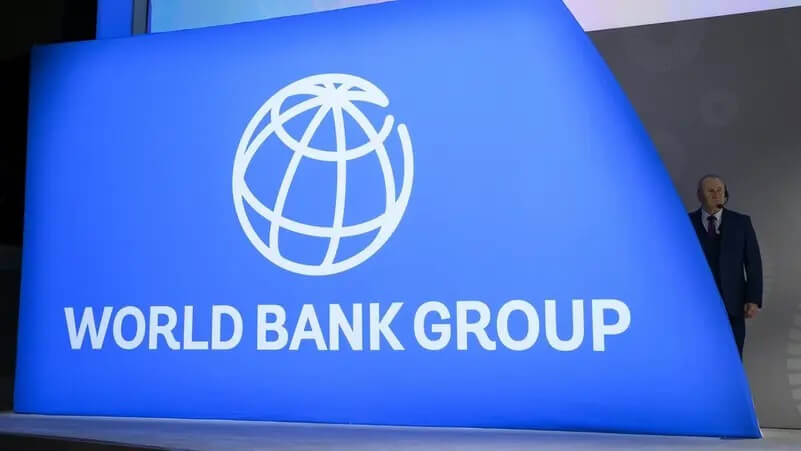World Bank advises Iraq to diversify economy, reduce dependence on carbon

The World Bank emblem. Photo: AFP
Baghdad (IraqiNews.com) – Iraq must move towards environmentally friendly development model to face urgent climate challenges, especially by diversifying its economy and reducing its dependence on carbon, according to a report issued by the World Bank on Tuesday.
By 2040, Iraq will need 233 billion USD in investments to respond to its most urgent development needs as it embarks on a greener and more inclusive growth, which is equivalent to six percent of its annual GDP, the World Bank report mentioned.
According to the United Nations, Iraq is among the five countries most vulnerable to the consequences of climate change.
Decades of conflict have also affected Iraq’s infrastructure and economy, which is highly dependent on oil that represents 90 percent of the country’s revenues.
The World Bank presented on Monday the report to the Iraqi authorities during a meeting in Baghdad.
The report provides an analytical basis for addressing the country’s most urgent development needs while facing climate challenges, according to a statement issued by the World Bank on Tuesday.
The report also discusses the cost of the country’s transition to a low-carbon economy, in addition to opportunities and reforms to pursue a greener growth model.
“Iraq is facing three basic challenges: the water challenge, the desertification challenge, and the air pollution challenge,” the World Bank Vice President for Middle East and North Africa, Ferid Belhaj, told AFP on the sidelines of the meeting held in Baghdad and attended by Iraqi officials.
Belhaj clarified that the World Bank is trying to propose reforms and policies to the Iraqi authorities, adding that Iraq has enough resources to confront these challenges, but the issue is related to how to ensure that these financial resources are put in place to serve new policies to manage climate challenges.
The report presents a set of recommendations and reforms that Iraq can undertake in the medium term (within five to ten years) and others in the long term, which will not take effect until after 2030.
